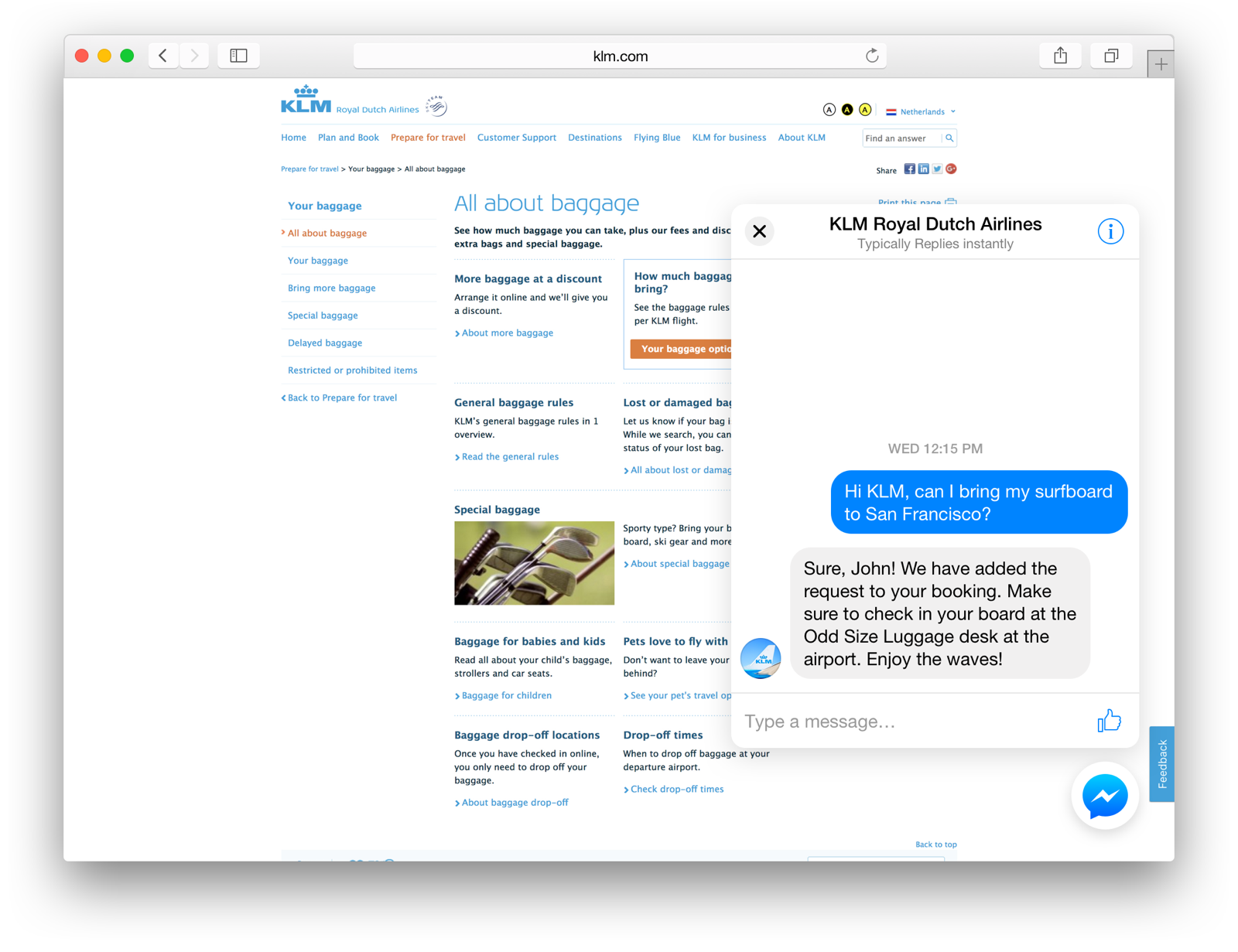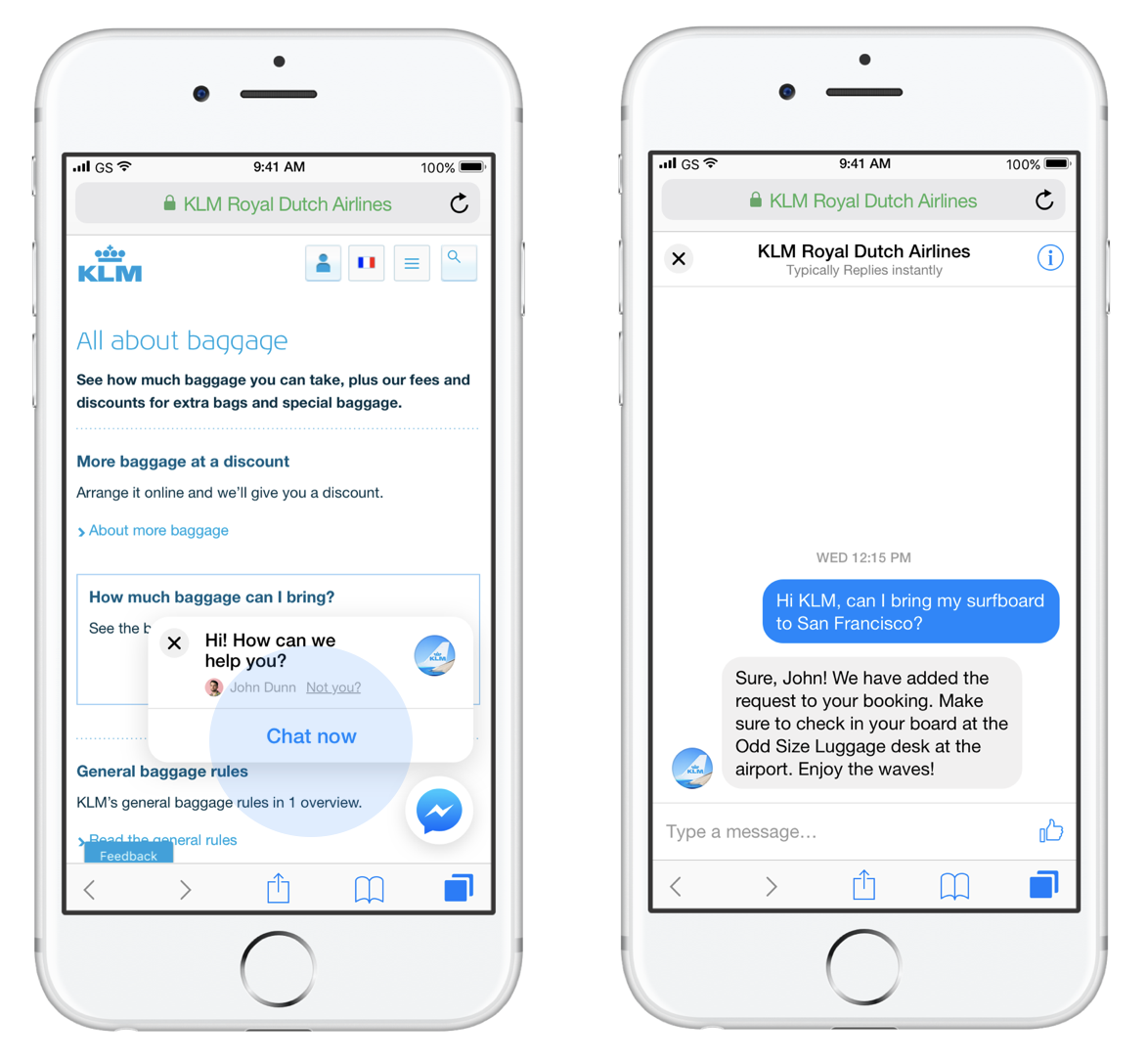Why you should use Facebook Messenger on your website
In May, I wrote about why Facebook Messenger will be the ideal platform for tomorrow’s customer service. As of November 30, 2017, Facebook opened its chat plugin for Messenger to its own websites. This enables a more seamless experience through the customer demand than previously managed to achieve where chat was exclusively available through the company’s website.
Keep the interaction across websites and devices
With the Facebook Messenger plugin, customers can move the call back and forth - seamlessly - from Messenger and the corporate website without losing the conversation’s history or context. The same applies if you move the dialog between devices like mobile, tablet and desktop.
These ongoing conversations also bring efficiency to your business; You can more easily keep track of the interactions across the entire customer license and thus make sure that the customer center does not lose context from the original request or complaint.


Gather dialogue with your customers across chat, email, and telephony
At the same time, it is important that the customer center is equipped to respond to requests that also do not come via Facebook Messenger. By acquiring solutions that handle multiple channels such as social media, web chat, email, and telephony in a common interface, the customer center will be able to maintain dialogue and revenue regardless of which channel and flat the customer moves.
Your customers will then not be able to repeat their inquiries when they move their dialog from, for example, social media and further by telephone or email. This will be good for the company brand and a good experience for the customer - which in turn gives good business.
Implement a proactive customer service
Other chat solutions that exist today allow only your customers to talk to your business in what they visit your website. After the interaction has been completed, you can not hear from the customer again before the customer, if any. again contacting the business.
Such an approach is a highly reactive form of customer service.
With the Facebook Messenger plugin, your customer can answer questions instantly via your site and then continue the dialog at a later date from, for example, their mobile or tablet.
How does this become proactive?
When your business can reach every single customer - who has previously interacted with your business through Facebook Messenger - you can easily maintain the dialogue, even after the first interaction with the customer has been completed.
The customer can thus make communication with your company easier.
Use cases for facebook messenger
Facebook Messenger can be used for sales, support or other purposes as desired.
In addition to the ability to “transfer” the dialog across desktop, mobile, tablet and website - Facebook Messenger support features like:
- Payments
- NLP
- Video
- Pictures
Do you have a business chat solution today or have plans for it in the future? Please add your experience in the comments below.

